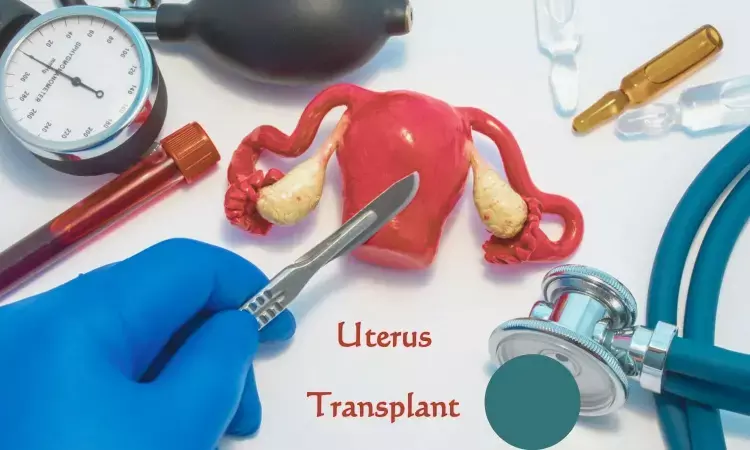- Home
- Medical news & Guidelines
- Anesthesiology
- Cardiology and CTVS
- Critical Care
- Dentistry
- Dermatology
- Diabetes and Endocrinology
- ENT
- Gastroenterology
- Medicine
- Nephrology
- Neurology
- Obstretics-Gynaecology
- Oncology
- Ophthalmology
- Orthopaedics
- Pediatrics-Neonatology
- Psychiatry
- Pulmonology
- Radiology
- Surgery
- Urology
- Laboratory Medicine
- Diet
- Nursing
- Paramedical
- Physiotherapy
- Health news
- Fact Check
- Bone Health Fact Check
- Brain Health Fact Check
- Cancer Related Fact Check
- Child Care Fact Check
- Dental and oral health fact check
- Diabetes and metabolic health fact check
- Diet and Nutrition Fact Check
- Eye and ENT Care Fact Check
- Fitness fact check
- Gut health fact check
- Heart health fact check
- Kidney health fact check
- Medical education fact check
- Men's health fact check
- Respiratory fact check
- Skin and hair care fact check
- Vaccine and Immunization fact check
- Women's health fact check
- AYUSH
- State News
- Andaman and Nicobar Islands
- Andhra Pradesh
- Arunachal Pradesh
- Assam
- Bihar
- Chandigarh
- Chattisgarh
- Dadra and Nagar Haveli
- Daman and Diu
- Delhi
- Goa
- Gujarat
- Haryana
- Himachal Pradesh
- Jammu & Kashmir
- Jharkhand
- Karnataka
- Kerala
- Ladakh
- Lakshadweep
- Madhya Pradesh
- Maharashtra
- Manipur
- Meghalaya
- Mizoram
- Nagaland
- Odisha
- Puducherry
- Punjab
- Rajasthan
- Sikkim
- Tamil Nadu
- Telangana
- Tripura
- Uttar Pradesh
- Uttrakhand
- West Bengal
- Medical Education
- Industry
Uterus Transplant Feasible with 70 Percent Success Rate and Live Births, Amid Frequent Adverse Events: JAMA

USA: In a landmark development, uterus transplants are emerging as a promising solution for women with absolute uterine-factor infertility (AUFI), a condition where the uterus is either absent or non-functional. This breakthrough offers new possibilities for women who previously had no options for carrying a pregnancy.
The study, published in JAMA, revealed that uterus transplantation proved feasible and led to at least one live birth following a successful allograft.
"In this study of 20 participants, 70% of uterus allografts were successful, and all recipients with successful transplants achieved at least one live birth. However, adverse events were prevalent, with medical and surgical risks impacting recipients and donors," the researchers reported.
Uterus transplantation, a relatively new procedure in the field of reproductive medicine, involves surgically placing a healthy uterus from a donor into a recipient who lacks a functional uterus. The procedure has been gaining attention for its potential to enable women with AUFI to experience pregnancy and childbirth. The recent success of several high-profile cases has brought renewed hope to many individuals struggling with this condition.
Against the above background, Giuliano Testa, Baylor University Medical Center, Dallas, Texas, and colleagues aimed to determine whether a uterus transplant is safe and feasible and results in births of healthy infants.
A case series involving 20 participants with uterine-factor infertility and at least one functioning ovary was conducted at a major US tertiary care center between September 14, 2016, and August 23, 2019. These participants underwent uterus transplantation with grafts from 18 living donors and two deceased donors.
The transplants were surgically positioned in the orthotopic location with vascular connections to the external iliac vessels. Participants were given immunosuppressive therapy until the transplanted uterus was either removed following one or two live births or due to graft failure. The primary outcomes measured were the survival of the uterus graft and the occurrence of subsequent live births.
The following were the key findings of the study:
- Of 20 participants (median age, 30 years; 2 Asian, 1 Black, and 16 White), 70% had a successful uterus allograft; all 14 recipients gave birth to at least one live-born infant. Eleven of 20 recipients had at least one complication.
- Maternal or obstetrical complications occurred in 50% of the successful pregnancies, with the most common being gestational hypertension (14%), cervical insufficiency (14%), and preterm labor (14%).
- Among the 16 live-born infants, there were no congenital malformations.
- Four of 18 living donors had grade 3 complications.
The findings showed that uterus transplantation is technically feasible and resulted in a high rate of live births following successful graft survival. However, adverse events were frequent, with both medical and surgical risks impacting recipients and donors.
"To date, no congenital abnormalities or developmental delays have been reported in the children born from these procedures," the researchers concluded.
Reference:
Testa G, McKenna GJ, Wall A, et al. Uterus Transplant in Women With Absolute Uterine-Factor Infertility. JAMA. Published online August 15, 2024. doi:10.1001/jama.2024.11679
Dr Kamal Kant Kohli-MBBS, DTCD- a chest specialist with more than 30 years of practice and a flair for writing clinical articles, Dr Kamal Kant Kohli joined Medical Dialogues as a Chief Editor of Medical News. Besides writing articles, as an editor, he proofreads and verifies all the medical content published on Medical Dialogues including those coming from journals, studies,medical conferences,guidelines etc. Email: drkohli@medicaldialogues.in. Contact no. 011-43720751


